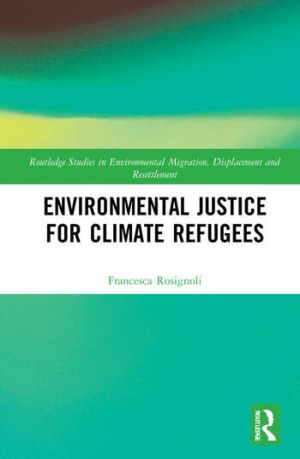
This book explores who climate refugees are and how environmental justice might be used to overcome legal obstacles preventing them from being recognized at an international level.
Francesca Rosignoli begins by exploring the conceptual and complex issues that surround the very existence of climate refugees and investigates the magnitude of the phenomenon in its current and future estimates. Reframing the debate using an environment justice perspective, she examines who has the responsibility of assisting climate refugees (state vs non-state actors), the various legal solutions available and the political scenarios that should be advanced in order to govern this issue in the long term. Overall, Environmental Justice for Climate Refugees presents a critical interrogation of how this specific strand of forced migration is currently categorized by existing legal, ethical and political definitions, and highlights the importance of applying a justice perspective to this issue.
Exploring the phenomenon of climate refugees through a multi-disciplinary lens, this book will be of great interest to students and scholars of environmental migration and displacement, environmental politics and governance, and refugee studies.